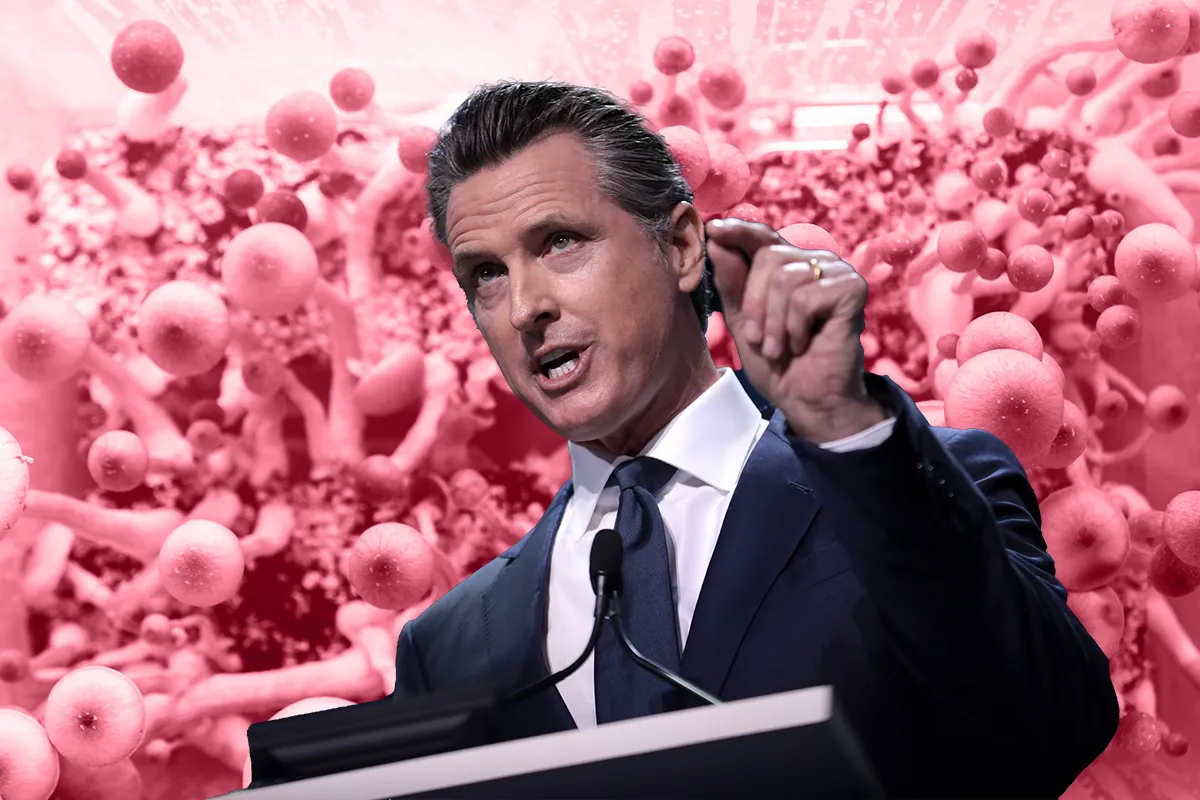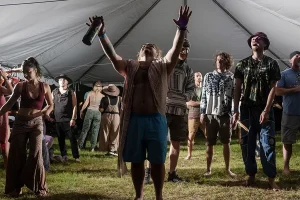On October 7th, Governor Gavin Newsom (CA-D) vetoed SB-58, the first psychedelic decriminalization bill to advance in the California Assembly, passing both chambers of state legislature.
SB-58 would have decriminalized the possession and personal use of certain psychedelic drugs, such as psilocybin, psilocin, dimethyltryptamine (“DMT”), and mescaline (excluding peyote) beginning January 1, 2025.
In his statement, Governor Newsom signaled hope for a future bill that includes regulated treatment guidelines. “California should immediately begin work to set up regulated treatment guidelines—replete with dosing information, therapeutic guidelines, rules to prevent against exploitation during guided treatments, and medical clearance of no underlying psychoses,” expressed Newsom. “Unfortunately, this bill would decriminalize possession before these guidelines are established, and I cannot sign it,” he added. Senator Wiener is set to propose a revised version of the bill next year, focusing more on therapeutic use.
While Governor Newsom’s veto of SB-58 may have been a setback for proponents of the bill, some activists found SB-58 to be flawed, such as not providing a distribution model and removing protections for facilitators of ceremonies. SB-58 would have removed criminal penalties for possession and allowed the state to begin further research on psychedelics. Despite the veto, Californians are not giving up on the vision of decriminalizing psychedelics.
READ: Will California Decriminalize Psychedelics This Year?
READ: New Bill Tries to Decriminalize Psychedelics in California—Again
The Psychedelic Wellness & Healing Initiative is one of three psychedelic initiatives aiming to make it on the 2024 ballot. “While we are unsure of what will happen with SB-58 here in California, we want to be prepared with an initiative that will provide comprehensive protections for individuals who wish to use entheogenic plants and substances for various purposes,” organizers of the Psychedelic Wellness & Healing Initiative wrote in a statement on Hyphae Leaks back in March.
The Psilocybin Mushroom Initiative, organized by Decriminalize California, is another ballot hopeful. The initiative would legalize and regulate the cultivation, processing, and distribution of psilocybin mushrooms for medical, therapeutic, religious, or recreational use, in any quantity, removing criminal penalties for anyone 21 or older. In contrast to SB-58, which would have decriminalized multiple substances, this initiative is dedicated only to psilocybin. “Originally we wanted to go for all psychedelics, but the problem was there wasn’t enough public comprehension about what else was out there,” Ryan Munevar, campaign director at Decriminalize California, told CalMatters. This will be the third attempt to make the ballot for Decriminalize California. A third initiative, the Treat Initiative, also hopes for a ballot spot. The Treat initiative does not include pathways for decriminalization or access. Instead, Treat’s sole focus is to dedicate $5 billion in funding to psychedelic research.
How to Grow Shrooms Bundle
Take Both of Our Courses and Save $90!
Of all, The Psychedelic Wellness & Healing Initiative of 2024, formally known as the Cognitive Freedom Initiative, is the most comprehensive, aimed at decriminalizing and regulating the cultivation, production, processing, and distribution of all entheogenic plants and substances in California for adults 18 and older—not just psilocybin.
“The Psychedelic Wellness & Healing Initiative strives to minimize government obstacles between patients and their medicines, especially providing exceptions for therapeutic or religious use of entheogenic substances,” notes Reggie Harris, an organizer of the initiative and founder of Oakland Hyphae. “At present, our proposal is the sole initiative or bill that establishes a marketplace grounded in a responsible access model. In this model, a buyer would need to get a recommendation from a healthcare expert, mirroring the cannabis protocol under Prop 215.” Prop 215, which passed in 1996, decriminalized medical cannabis in California. The bill was a precursor to cannabis legalization with the passing of Proposition 64 in 2016, which allowed for adult-use cannabis dispensaries. Harris thinks legalization of psychedelics—as opposed to decriminalization—would open the door to mistakes we’ve already seen with legalized cannabis: “market monopolization by large corporations, hurdles for analytical testing, and minimal protection for the legacy market,” he says.
Dave Hodges, founder of the Church of Ambrosia and co-organizer and proponent of The Psychedelic Wellness & Healing Initiative, who also contributed to drafting the first version of the Psilocybin Mushroom Initiative, highlighted the significance of a decriminalization effort that covers all psychedelics. “We do not provide access to LSD at the church, but it is one of the most frequent requests from our members,” he shared. Hodges also stated The Psychedelic Wellness & Healing Initiative’s medical approach provides more safety measures than SB-58 and the Psilocybin Mushroom Initiative. “I agree with Gavin Newsome–the safety was one of the biggest problems with SB-58. Although it would have decriminalized psychedelics, it didn’t have any way for anyone to safely access anything. It would have been a space where psychedelics are decriminalized, but there wouldn’t be any safe space to acquire them. It would have created an underground decrim market without any protection for the provider or the consumer of psychedelics.”
“The Psychedelic Wellness & Healing Initiative covers more substances than the psilocybin initiative, while having more guard rails because it has the doctor’s recommendation, similar to Prop 215,” explained Nara Dahlbacka, an organizer for SB-58 and partner of the Milo Group of California, the company that rallied support for SB-58. “I believe the general public would feel more at ease with a doctor’s endorsement,” Dahlbacka remarked.
Amid these statewide efforts, various cities in California are adopting their own approaches through the deprioritization of psychedelics. Instead of enforcing strict laws against these substances, cities such as Santa Cruz, Oakland, Arcata, Berkeley, and San Francisco signal a change in perspectives, at least at the local level. While decriminalization involves formally reducing or removing legal penalties for possession or use, deprioritization shifts law enforcement’s focus, treating cases related to the substance as a lower priority.
“We are well over a year away from any action at the state level. As someone with extensive experience with local government, it’s important place to focus locally,” added Dahlbacka. “Local jurisdictions will have to start looking at decriminalization efforts in their communities by setting up performance standards. This might entail establishing performance metrics, ethical guidelines, or business licensing procedures. Facilitators could then operate in their cities under some form of permitting process, offering greater legal protections in cities that have already deprioritized psychedelics.”
“We shouldn’t be arresting individuals for any form of possession,” stated Dahlbacka. “While these medicines remain criminalized, individuals risk their well-being by using them and are pushed into unsafe situations to access them. This pertains to health, not criminal justice.”
DoubleBlind does not endorse any particular piece of legislation or proposed legislation.

DoubleBlind is a trusted resource for news, evidence-based education, and reporting on psychedelics. We work with leading medical professionals, scientific researchers, journalists, mycologists, indigenous stewards, and cultural pioneers. Read about our editorial policy and fact-checking process here.

DoubleBlind Magazine does not encourage or condone any illegal activities, including but not limited to the use of illegal substances. We do not provide mental health, clinical, or medical services. We are not a substitute for medical, psychological, or psychiatric diagnosis, treatment, or advice. If you are in a crisis or if you or any other person may be in danger or experiencing a mental health emergency, immediately call 911 or your local emergency resources. If you are considering suicide, please call 988 to connect with the National Suicide Prevention Lifeline.



